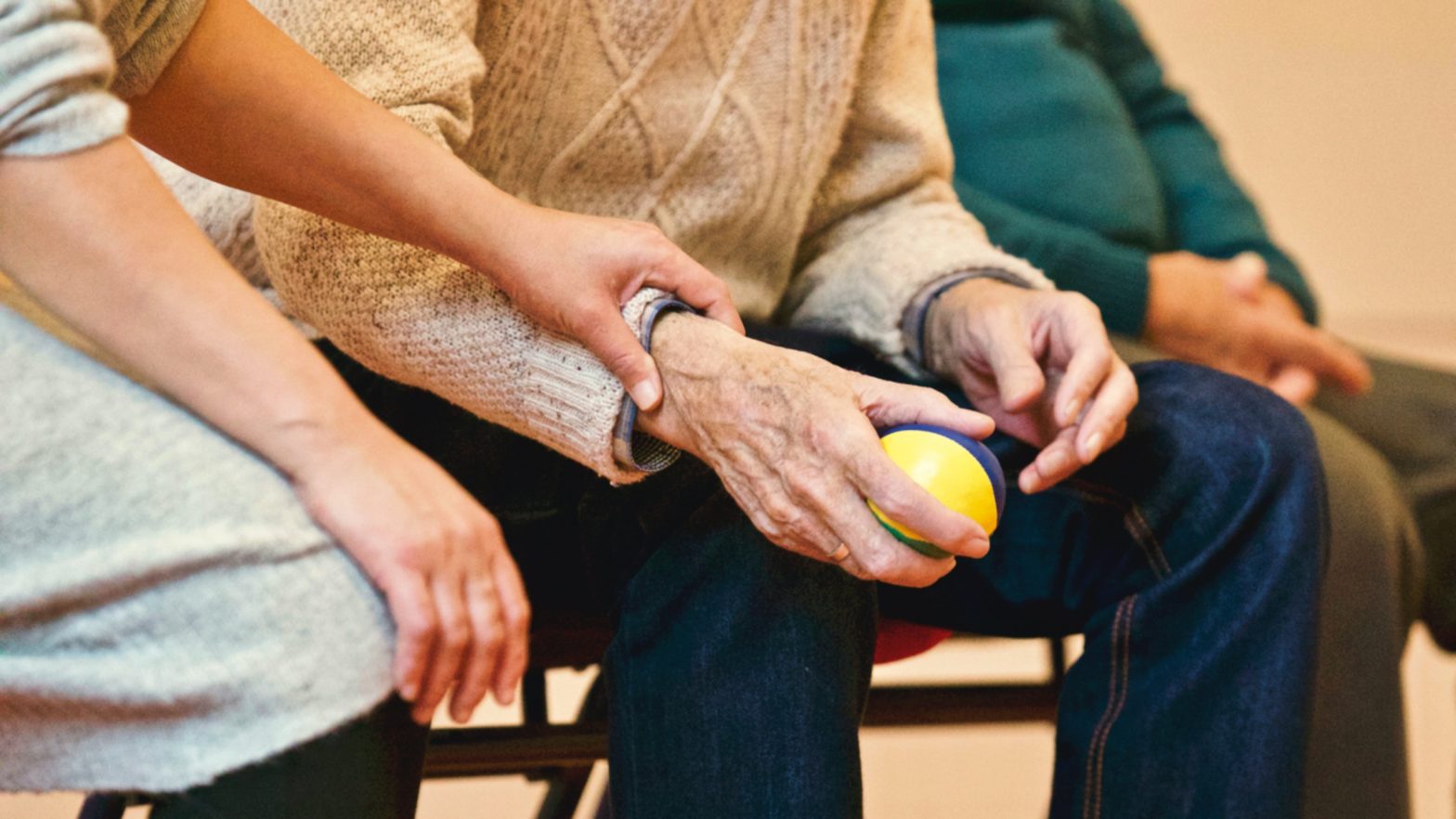Speak to a local care advisor at Assisted Living Locators by calling (888)-267-4741.
Learn about Assisted Living, Senior Living, Memory Care, and In-home care options.
Finding care for an elderly parent or family member can be challenging; deciding from the many options and programs available for senior care can be overwhelming and expensive. Opting to serve as a caregiver for a loved one can also be challenging, especially for adult children caring for elderly parents. Taking care of mom or dad at home can be emotionally comforting for elderly parents, as they can remain around family members and feel supported if they need help. Oftentimes, though, this arrangement can be difficult for the people serving as caregivers. Trying to balance the independence of an aging parent while finding them the assistance they need is no cakewalk. Luckily, there are many tips and services available to help family caregivers in these situations.
Find Resources That Support You
Several resources exist to support caregivers specifically. If you are able to seek therapy or talk with a counselor, consider doing so. This is an incredibly challenging experience; between processing grief or other emotions, extending yourself to meet your parent’s needs, and maintaining your own life, talking to a professional can help you function in this unprecedented time. Look for support systems in your own social circle and in caregiver support groups. Many groups meet in-person locally, while many others exist online or on Facebook and other social media platforms. Remembering that you are not alone while caring for your loved one can make the process easier and lighten the responsibility on your shoulders.
Include Your Parent In The Conversation
An aging parent is experiencing many changes at this point of their life, and while aging in their own home or the home of a family member can feel more familiar than a retirement community, there are several other things your parent may be anxious about. If your parent is able to participate in the conversation about their care, make sure to hear their needs and wants in the situation. Being transparent with your loved one about care, potential costs, and other information can help both of you feel more comfortable in the situation. Coming to terms with your parent aging can be stressful and emotional, making the conversation difficult to have.
At the same time, an elderly parent may have trouble admitting that they are struggling to care for themselves, making the conversation challenging. Facilitate communication by using “I” statements. Your loved one may be defensive or may be struggling to come to terms with their own aging, and addressing their needs can feel overly personal. Accept that your parent’s personality is changing as well, and they may act differently than you’d expect them to in the conversation. Framing statements around your observations and feelings (i.e. “I am uncomfortable with the idea of you living all alone” or “I noticed that you haven’t been grocery shopping in a while”) helps keep the conversation neutral rather than confrontational. Similarly, using observations and specific instances where your loved one could benefit from support illustrates where you are coming from in the conversation. While it’s important to avoid being overly critical, giving examples of how your parent may need help maintaining their lifestyle is an effective way to get them to recognize areas in which they would benefit from care. Above all, be empathetic. This is a challenging time for both you and your parent. The reversal of caregiving roles is likely a new dynamic for your relationship, and understanding how confusing or frustrating it is for your parent can help you frame your conversation.
Consider Your Parent’s Needs
Aging parents can have a variety of needs; there is no one “right” way to care for an elderly loved one. Consider what support your loved one needs. For example, are they capable of living in their own house, or will they need to move in with family? Consider the resources at your disposal (including home health aides, family members, and friends, home care services, etc.) and assess how much support your parent needs. Often, it’s easy to think of senior care in terms of just health care, but care can extend to basic lifestyle needs and hygiene.
- If they are staying in their own home, will they be able to drive themselves or will they need assistance? A loved one who is still driving themselves may be more autonomous but still may need help with chores like grocery shopping that require more physical effort. If an elderly parent is no longer able to drive themselves, how often will they need transportation, including for doctor’s visits, grocery shopping, or social outings?
- Is your loved one capable of maintaining their lifestyle on their own? Remember that household tasks like cooking, cleaning, gardening, etc. may become overwhelming for your loved one. Still, a loved one having a person to mow the lawn and clean once a week is a different level of need than a loved one being unable to prepare their own meals each night.
- Does your loved one have specific medical care needs? Aging parents may need varying levels of medical care based on their health. Consider the frequency of doctor’s visits, physical therapy appointments, or other health services your loved one may need. If your loved one has a chronic illness, disability, or long-term medical condition, gather information on care resources. In the case that your loved one is affected by memory loss, Alzheimer’s disease, or dementia, they may need more consistent care than you are able to offer, and may benefit from a specific skilled nursing or assisted living facility.
- If your loved one is not staying in their own home, what will the process of relocation look like? Plan ahead of time for how your parent can transition out of their home and into yours. Consider getting in contact with real estate agents if your parent plans on selling their home, and plan for any changes you may need to make to your home to make it accessible to your family member.

Research an Adult Day Care, Home Care Service, or Home Health Aide
Just because a parent aging in their own home or living with family does not mean that they are ineligible for professional senior care programs. An adult day care service is designed to help seniors find a sense of community and socialization during the day when caregivers may not be available. While some adult day cares are designed specifically for therapeutic or medical programs, other adult day care services center around quality of life for their attendees. Another option to help provide care for seniors aging at home is hiring a professional home care service or home health aide. A home care service typically consists of a senior care professional who will come into your loved one’s home on a regular basis to help with a range of needs. These services are often very flexible, tailoring a plan of care to the specific lifestyle of your aging parent. Even if you are the primary caregiver for your parent who is aging-in-place, home care services can still benefit for both of you. Recognize your own responsibilities (jobs, children, etc.) and the needs of your parent. Caring for an aging loved one isn’t easy and is a major time commitment. Home care services can support both you and your parent in maintaining your responsibilities and lifestyles. Some home care services offer specific home health aides with specialized medical training. Especially for loved ones struggling with a long-term disability, memory loss, or other health concerns, having someone with relevant medical training can help maintain their patient’s health and your peace of mind when you can’t be with your parent. Home health aides can offer companionship and lifestyle support to your parent as well.
Learn Skills You May Need to Take Care of Your Loved One
Regardless of if you are able to employ the help of a home care service/home health aide or adult day care program, you still may need to learn new skills to support your loved one based on their specific set of needs. Consult your parent’s doctor about their diagnosis to see what they recommend to help with your caregiving practices, as caring for loved ones with different health needs requires specific knowledge of their conditions. Consider both the emotional and physical needs associated with your loved one’s care. Again, this set of skills can vary widely based on your parent’s needs, but prepare for situations you feel may arise. Some vital skills, like empathetic listening and first aid, you likely already know, but there may be specific needs associated with caregiving that you will need to develop.
Talk With Siblings and Other Family Members
If you can, talk with siblings or close family members about how they may be able to help support your aging loved one. While out-of-state relatives may not be able to provide their time or physical support to a parent, they may be able to chip in financially for a loved one concerned about the cost of care. Other local family members and adult children may be able to help you by providing transportation or spending time with your aging relatives. Although it can be difficult, having these conversations with any available family can help ease your responsibility as the primary caregiver.
It is common for siblings to fight over mom or dad’s care; having an honest conversation about what kind of support everyone is physically, emotionally, or otherwise able to provide upfront can help prevent conflict in later stages of caregiving. Everyone processes emotions differently, and dealing with a loved one’s aging can trigger a range of feelings and experiences. If you are able to communicate with your siblings about how you’re feeling or how they are feeling, it can benefit all of you and by extension, the parent you are caring for.
Medicaid and Veteran’s Aid & Attendance May Cover Home Care Costs
Taking care of your elderly parent can be expensive, but there are several financial services and options available to help make covering the cost of care easier. Many people don’t realize that in some cases, Medicaid can be applied to home care services. Depending on the waivers and policies your state requires, a senior enrolled in Medicaid may be able to use the program to cover the cost of a home health aide providing them with care as opposed to only covering the cost of residential care facilities like nursing homes. In some cases, you may be eligible to receive compensation from Medicaid if you serve as the primary caregiver for your elderly loved one. While eligibility is state-specific, researching information on your state’s Medicaid policies can mean that you are compensated for the time you spend taking care of your parent, recognizing the time commitment that being a caregiver requires. If your parent is eligible for Veteran’s Aid & Attendance and Housebound Pensions, these may also be applied to the costs of private home care. Consult with a VA benefits expert to see how your loved one can apply these services to in-home care costs.

Remember to Take Care of Yourself
While this is a challenging time for your parents, it’s also can be incredibly difficult for you. Serving as a caregiver to a loved one is a large responsibility, and recognizing your needs will benefit you and those you care for. Learn signs of caregiver stress and monitor how you feel over time. This stress can be emotionally impactful; many caregivers report feeling sad or losing interest in daily activities they would typically enjoy. This stress can also manifest physically, affecting everything from your sleep cycle to your eating habits, even causing body aches in some cases. Remember that you need to be an effective caregiver to yourself to be able to help support your family members. While there are many resources to support you as a caregiver, learning how to cope with this new set of challenges is also important to your well-being. Recognize that you may not be able to do everything for your loved one; learning to set realistic goals and asking for help where you need it can help prevent burnout and can help you prioritize your needs.
References:
https://www.aarp.org/caregiving/life-balance/info-2019/when-aging-parents-resist-help.html
https://www.aarp.org/caregiving/home-care/info-2019/safety-tips/
https://www.caregiver.org/children-aging-parents
https://dailycaring.com/keeping-aging-parents-at-home-5-top-caregiving-tips/












